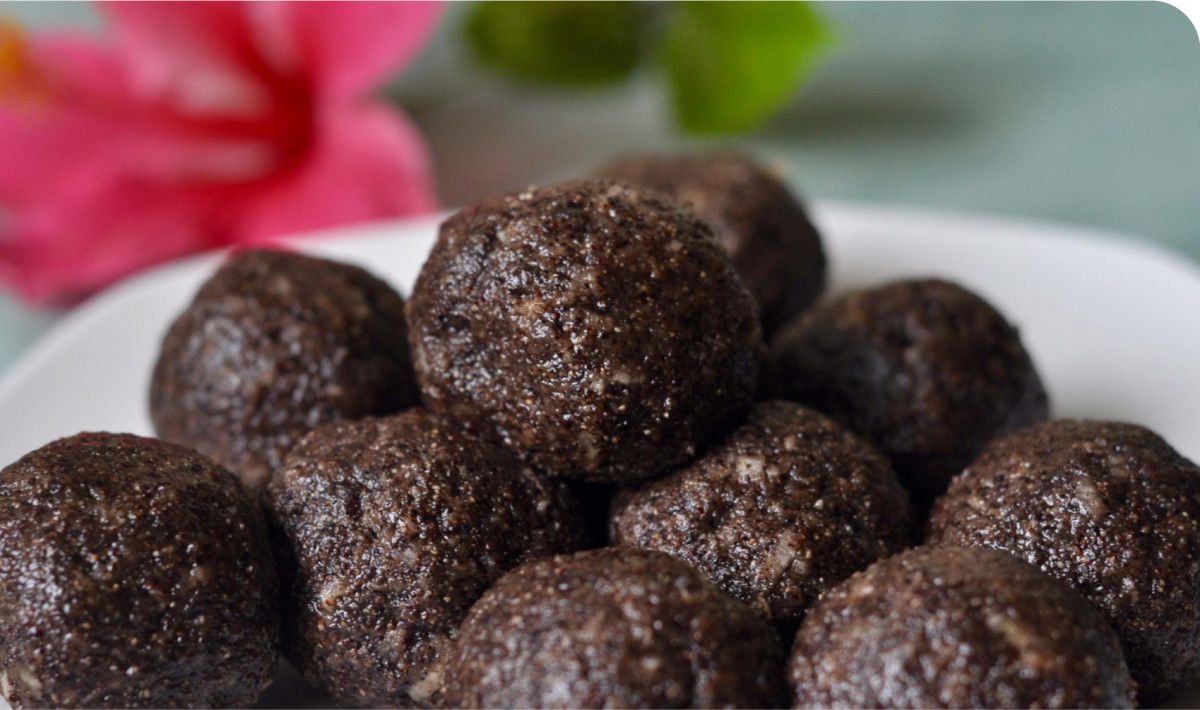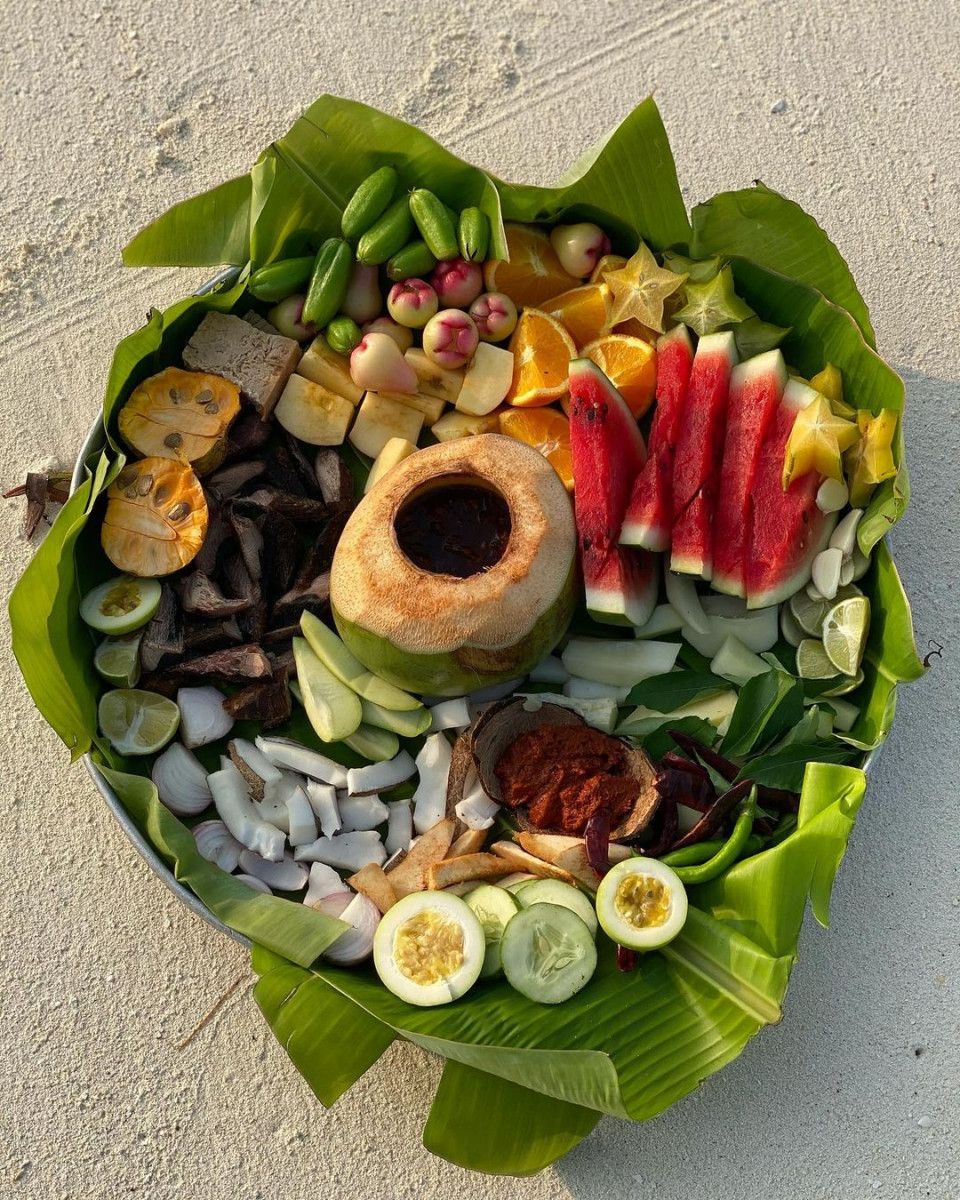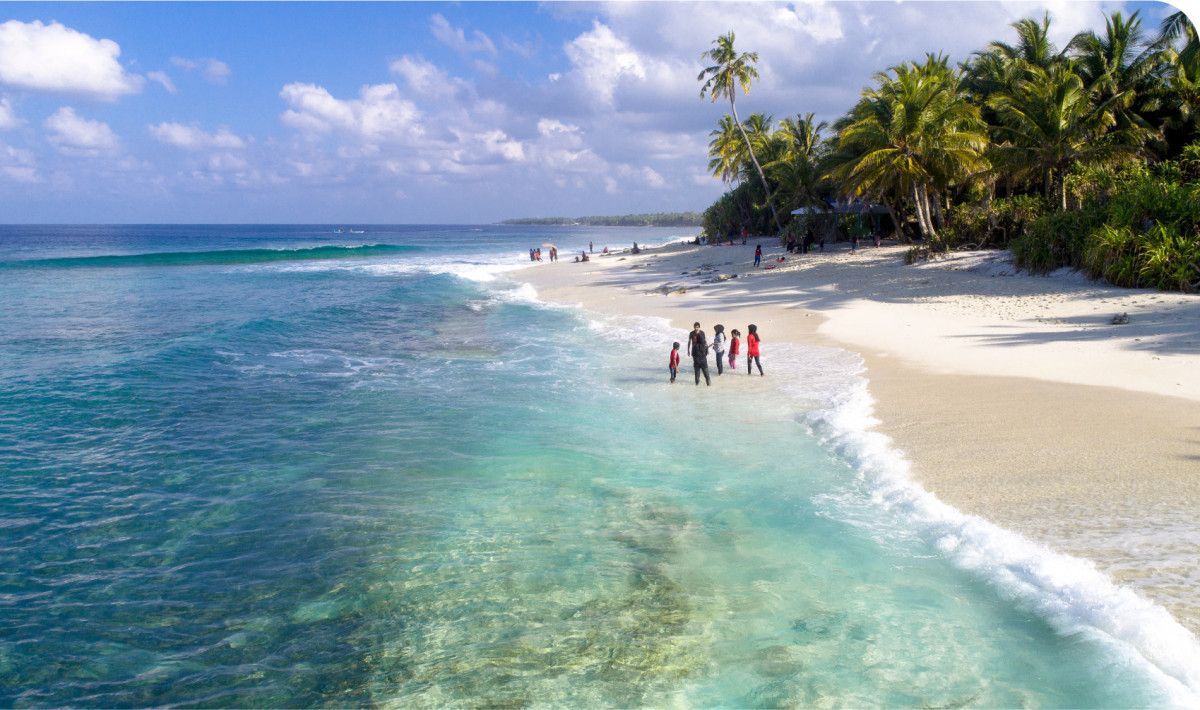Experience
Maahefun - A Unique Maldivian Tradition to Welcome Ramadan
The month of Ramadan is a month of self-reflection, meditation, and compassion, and a month of holy worship for muslims. The month is also considered a festival of feasts, with muslims across the globe welcoming people of other faiths to celebrate the lively occasion. This is certainly true in the Maldives, because we believe that food really does taste better when you’re sharing it with your loved ones, especially after a long day of fasting.

A Ramadan tradition that is unique to the Maldives, however, is Maahefun - it’s not really a tradition carried out regularly in any of the other muslim nations in the world, nor does it have any religious connotations. What started out as a way to have a last meal before beginning fasting during Ramadan has now evolved into a celebration of food, sharing, and togetherness - a well-loved and anticipated annual gathering of friends, families, and loved ones.
Traditional Maahefun Goodies
Traditional maahefun foods in the Maldives are based on ingredients that were the easiest to source in the ancient times. The dishes mainly consisted of coconut, smoked fish and fish paste, coconut honey, and different natural starches like taro, screwpine and cassava. Quintessential Maldivian flavours such as lime, chillies, and onions for the savouries, and cane sugar, bananas, and flower water for sweets, make up the remainder of the aromatics and ingredients for these dishes.

Faaroshi (dried bread rusk) is one of the main ingredients used in some of the most popular maahefun dishes. These are dried pieces of bread, or bread rolls, which are either twice baked or even traditionally sun-dried.
For Kulhi Faaroshi (Spicy bread rusks) and Foni Faaroshi (Sweet bread rusks), the aforementioned main ingredient is ground into rough chunks and mashed together with corresponding flavourings. Additions for Kulhi Faaroshi include pieces of desiccated fish, coconut flakes and rihaakuru (Maldivian fish paste), and Foni Faaroshi gets delicious goodies like dhiyaa hakuru (coconut honey), coconut flakes again, and bananas. The rusks absorb in the piquant juices of the sweet, and/or savoury flavours during the mixing process. The resulting dishes are soft, full-bodied, and succulent beyond your expectations.

Another famous maahefun staple is Aveli - thin, dried, and flattened rice flakes, also known as poha, pauwa, avalakki, chiura, or ava in different asian cuisines. The aveli is mixed in with ripe bananas, natural sugars and grated coconut to create the traditional sweet dish known simply as Aveli. There is a less famous, but no less well-loved, savoury option of this is, strangely enough, also known as Aveli. This dish is made with a mixture of grated coconut, rihaakuru and other lovely savoury ingredients.

The last traditional maahefun dish that we want to spotlight is maafuh; round, soft, decadent balls of millet flour with the usual Maldivian elements. The main component in maafuh is the namesake - ground and roasted finger millet - an ingredient famous worldwide for porridge, and imparts a rich nutty flavour when roasted. It’s mixed in with ripe bananas, grated coconut and natural sugars, and then rolled into balls, ready for snacking.
Some other common items that you can find in a traditional Maldivian maahefun may include delightful treats such as maskaashi (pieces of young coconut served with slices of smoked tuna), Fihunu Mas or Theluli Mas (fish slathered with a special Maldivian spice mix, roasted whole or fried in pieces), as well as several types of desserts made from a variety of local ingredients such as Banbukeyo Bondibai (breadfruit pudding), Saagu Bondibai (tapioca root pudding) and the delectable Pirini (rice pudding sweetened with condensed milk, topped with a layer of cinnamon and ground sea almonds).

The Evolution of the Culture… and the Flavours

With more and more conveniences from all corners of the world available at our fingertips in modern times, the tradition of Maahefun in the Maldives has also grown to a point where not having a maahefun before Ramadan may as well be considered a travesty. Home-grown Maldivians have even started practising this tradition while studying or living in other countries, turning Maahefun into a cultural phenomenon that has grown beyond the Maldivian borders. Maahefun celebrations are now held by companies in addition to families and communities, using the opportunity to pack in some unique team-building activities. Many restaurants and food vendors create special Maahefun packages, so that the goodies can just be delivered and professionally catered, rather than the communal cooking experience that it represented before.

One thing that hasn’t changed though, are the flavours. The traditional dishes that Maldivians made for their Maahefun some 100 years ago are still the flavours that are loved and treasured today. While additions have been made to the dishes served during a maahefun, it’s still not considered complete if those traditional flavours are not there.
The Annual Fuvahmulah Maahefun Festival - A Must-Try Experience

One of the islands of the Maldives that still faithfully follow the tradition of a communal maahefun would be Fuvahmulah City, the only island in the Maldives that is its own atoll. Fuvahmulah city is famous worldwide as a diving destination teeming with varieties of marine life. Fuvahmulah is one of the southernmost atolls of the Maldives, and correspondingly, the culture and traditions practised there show the usual deviations from those in the Northern and Central regions of the island nation.
The annual Maahefun Festival at Fuvahmulah City is a vibrant event involving everyone in the city. All residents are invited to gather at Thoondu, the long stretch of golden-white beach at the northern end of the island. Some bring food already prepared at home, others prepare it on the beach itself, and the entire island community enjoy a full-day (and sometimes even upto three days) of food, fun, and festivities on the beach. One of the things that most Maldivians really enjoy is, after finishing the eating portion of the Maahefun, they will start chasing after people and depositing anyone they catch into the sea in a joyous game of catch.
If you are in the Maldives preceding the month of Ramadan, then getting invited to a local maahefun celebration should be at the very top of your to-do list. Hotels in major cities would be more than happy to provide a maahefun feast for visitors should they ask, and liveaboards and island resorts can accommodate any such requests too. But for the true, Maldivian Maahefun experience, joining the festivities of a local island like Fuvahmulah City is definitely the way to go.